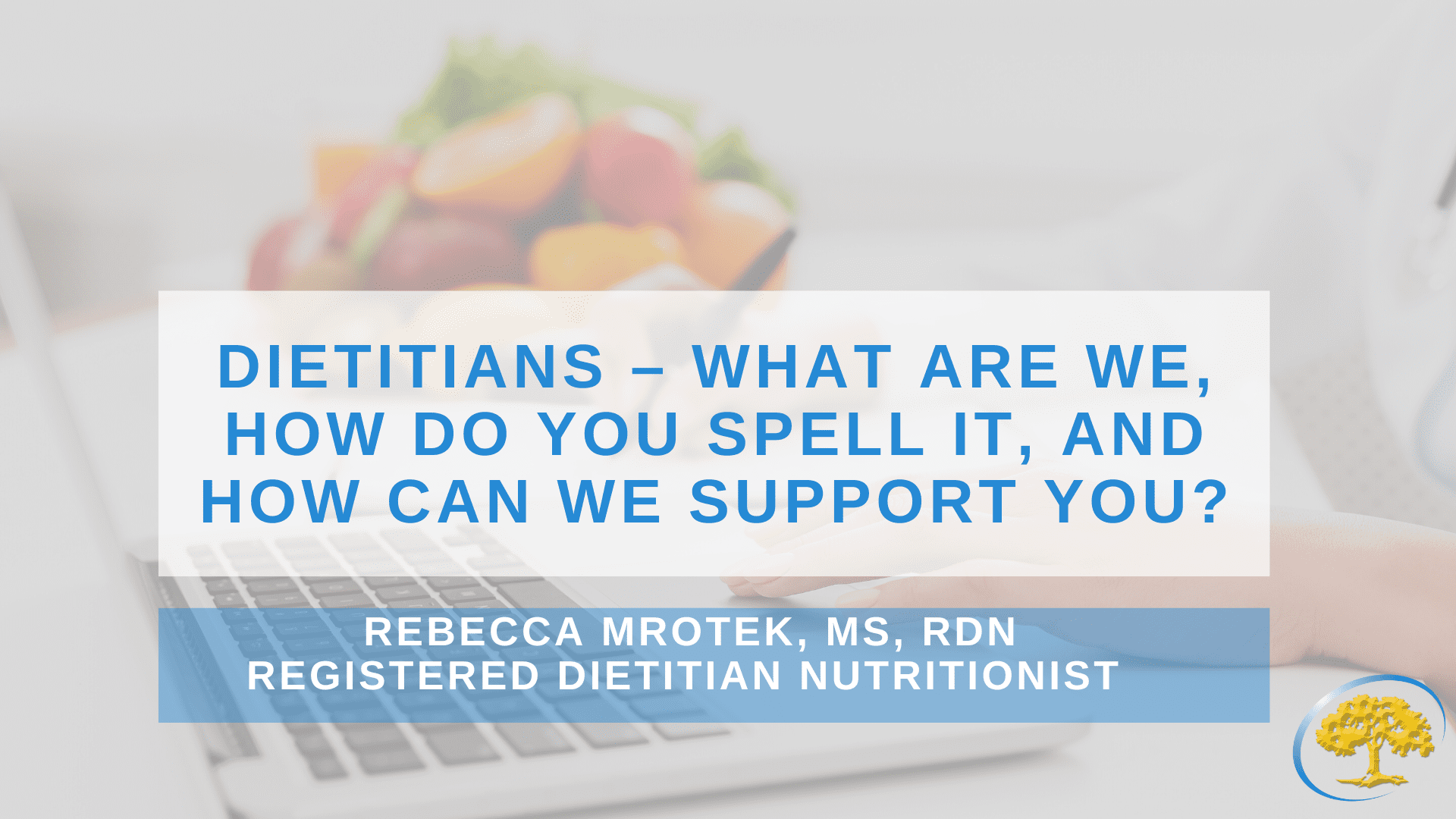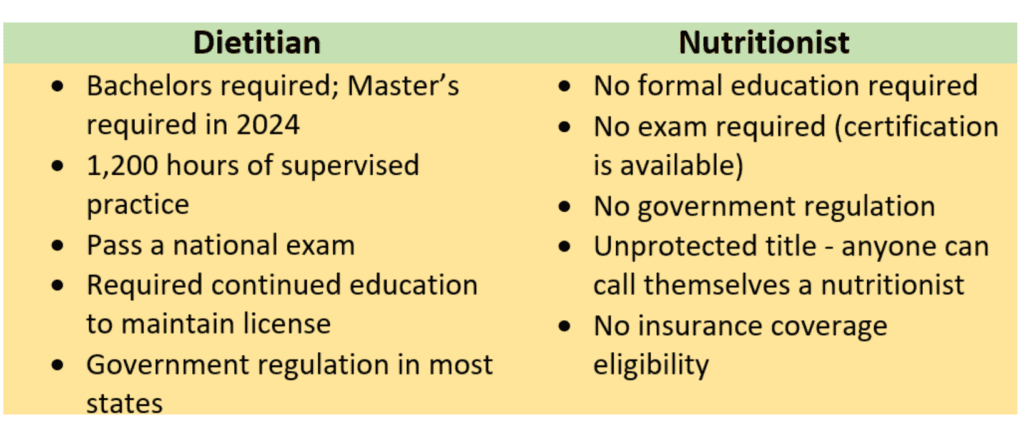
Posted 3 years ago
Dietitians – What are we, how do you spell it, and how can we support you?
Over the past 100 years, the understanding of how nutrition affects our bodies has developed exponentially. What used to be general recommendations and blanket statements, has evolved to individualized approaches that consider an a person’s environment, biology, lifestyle, and disease state. Since the knowledge of nutrition has expanded, the understanding of what we should and should not eat can be difficult to navigate. This growth in knowledge paved the way for specialized training and the creation of nutrition professionals. Especially in the realm of oncology, nutrition plays a vital role in the risk and development of cancer, quality of life during treatment, success of treatment, and decreased risk of reoccurrence while in remission.
History
The relationship between the body and nutrition started in ancient Greece where there are manuscripts citing the use of food as medicine for various illnesses. We have come a long way from herbal remedies as a therapeutic approach to terminal diseases, but this was the beginning of thinking about food as more than something to enjoy.
Fast forward to the end of the 1800s, research discovered common vitamin deficiencies in the general population that led to the addition of vitamins in foods (fortified foods) in 1924. Finally, in 1941, general recommendations for specific nutrients were published, now known as the Recommended Dietary Allowance (RDA) and Dietary Reference Intakes (DRI) that can be found on product labels.
The first recognized dietitian was Alexis Soyer in 1854. Nurses followed his example and began implementing nutrition as part of their patient care, leading to the development of nutrition specialists. Eventually, this led to the creation of the American Dietetic Association (ADA).
Dietitian vs Nutritionist
The ADA represents professionals in a nutrition-focused field and provides resources, research, and evidence-based recommendation. Dietitians are accredited with the ADA and are licensed to work in a clinical setting and hold their own practice with some insurances providing coverage. Sometimes, dietitians and nutritionists are misunderstood as the same profession, but there is a big difference between the two titles.
Due to this frequent confusion and lack of knowledge of what a dietitian is, the ADA added the title “Registered Dietitian Nutritionist” or RDN to promote more public recognition and understanding of this profession.
Dietitians in the Oncology Setting
Cancer is a critical time to prioritize nutrition. It is well studied that those of a higher weight for height have a decreased intake of nutritious foods like fruits and vegetables and higher intakes of saturated fats and sugar leading to an increased risk of cancer development. Nutrition is a preventative approach to healthy lives and longevity. Unfortunately, once diagnosed and/or going through treatment, the definition of “healthy” in terms of nutrition may need to be modified.
Once cancer develops, the body is in a chronic state of inflammation making the body hypermetabolic, in other words, it needs more calories and protein to support itself. Additionally, this pathophysiology of cancer in the body can reduce appetite. These two changes caused by cancer can lead to weight loss, and not the good kind that people go on diets to achieve. This weight loss begins at the muscle, not the fat. Protein becomes an important part of nutrition to preserve this muscle loss as much as possible.
Weight loss in cancer can be due to lack of resources, dieting, lifestyle, and/or unmanaged side effects. Nutrition assessments help evaluate any contributing factor and provide the most up-to-date recommendations. Dietitians look at the full person when consulting with an individual. While a plant-based diet is most researched as the healthiest diet to reduce risk of cancer and reoccurrence, this may not always be the best choice if losing lean body mass. Prioritizing quantity over quality of foods when losing weight is more beneficial for health.
If anyone is struggling with understanding what to eat that is specific to you, Ironwood has two dietitians that are here to help. Let our team know that you would like to schedule an appointment or call us directly.
Brenda Gridley, CSP, RDN
Serving East Valley – Mesa, Gilbert, and Chandler locations
Office #: 480-398-7670

